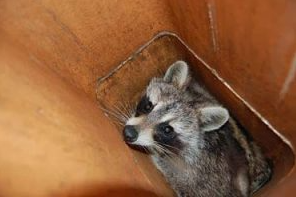View Our Financing Options
More Information



If animals are in your chimney, you'll likely notice several signs. Noises such as scratching, scurrying, chirping, or thumping, particularly at night, suggest animals like squirrels, raccoons, or birds are present. You might also observe flies near the fireplace, indicating possible decaying matter or waste from trapped animals. Pets may act unusually, focusing on the fireplace by staring, barking, or sniffing, as they sense the animals inside. Foul, rotting, or ammonia-like odors, along with a musty smell, can point to a decomposing animal or urine/feces in the chimney. Physical evidence like soot trails, dirt, or damaged chimney caps can also suggest animal activity. If you notice these signs, it’s important to have a professional chimney inspection to safely address the situation.
Schedule A Service
A sturdy chimney cap is the first line of defense. It prevents animals like squirrels, raccoons, birds, and bats from entering through the top of the chimney. It also keeps debris, rain, and snow out, which could cause blockages.


All potential entry points around the chimney should be sealed. This includes repairing any cracks or gaps in the masonry, and ensuring that the flue and damper are properly closed when not in use.
Regular inspections and maintenance are key to ensuring your chimney is free of animals. Our team will thoroughly inspect your chimney for signs of animal entry, damage, or nesting, and provide effective removal to prevent further issues. With routine care, we help extend the lifespan of your chimney, prevent costly repairs, and ensure proper airflow, improving your home's safety and comfort.
.JPG)
Can't find the question you're looking for? Ask us here.
If you suspect animals are in your chimney, it’s best not to use the fireplace until they’ve been removed. Avoid trying to remove them yourself, as animals can be unpredictable and may cause harm to both themselves and your property. Contact us for professional removal service for assistance.
We use humane methods to safely remove animals from chimneys without trapping. Our team carefully encourages the animals to exit, then seals off entry points to prevent them from returning. The process is quick, respectful to the wildlife, and minimally disruptive to your home.
Raccoons, squirrels, birds, bats, and sometimes even possums are the most common animals found in chimneys. They are often drawn to the warmth and shelter chimneys provide, especially during colder months.
Yes, animals in chimneys can cause a lot of damage. They may chew on wires, insulation, and the chimney structure itself. Nests and droppings can also block ventilation, increasing the risk of fire or carbon monoxide buildup. Additionally, the presence of animals can lead to unpleasant odors and health hazards.
Installing a chimney cap is a great first step to block animals from entering. You should also regularly inspect your chimney for cracks or gaps that animals might use to get inside. Additionally, sealing any other entry points in your home and keeping trees and branches trimmed away from the roof can help prevent access.
A professional inspection will determine whether animals are present. After removal, we can inspect the chimney to make sure it's free from obstructions and secure. We also recommend annual inspections to avoid future issues.
Ignoring animals in your chimney can lead to more serious issues, including structural damage, the risk of fire, and health concerns from droppings and nesting materials. It can also cause future infestations if entry points aren’t sealed.






.png)
.png)
Reliable and professional chimney services, including inspections, cleaning, repairs, installations, and more. Keep your home protected and your chimney running efficiently—contact us today!